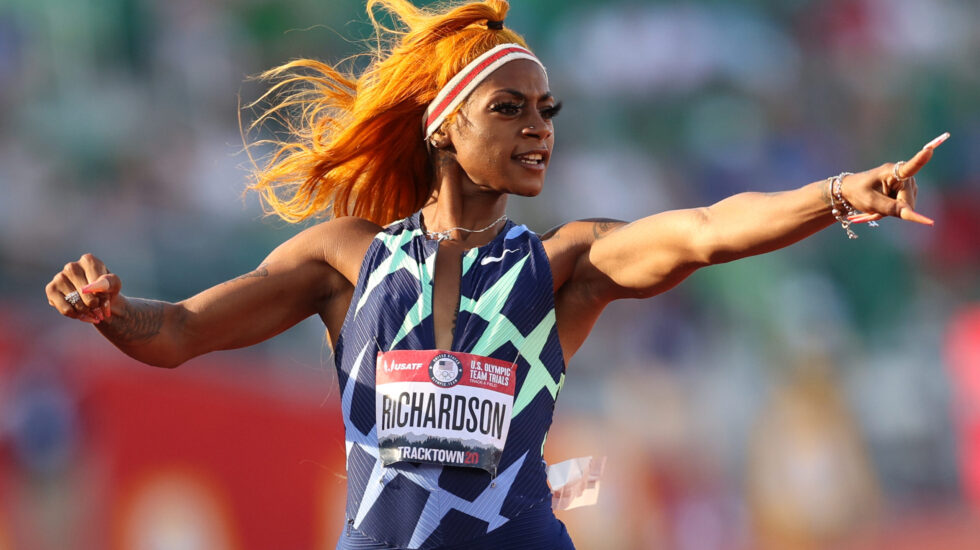The International Olympic Committee needs to make some changes before the next Olympics when it comes to the treatment of Black women. They are changes that should have been made long ago. The ACLU is on a mission to make it happen. The organization writes: Black women are required to alter their bodies and practices, inside and out, simply to step onto the playing field.
A lot of the issues with the Olympics and Black women were thrust to the forefront after Sha’Carri Richardson’s Olympic dreams were cut short. The American sprinter was a favorite to take home the gold in the 100-meter race but was disqualified after she tested positive for marijuana. She broke a rule that many say should be changed.
Richardson’s story is just one of many this year. AXIOS cites two Namibian runners Christine Mboma and Beatrice Masilingi.
Two of the fastest 400-meter runners in the world, have been banned from competing after having “naturally high testosterone levels.” It’s worth noting that the specific rule establishing such limits was created, in large part, as a response to another African woman, Caster Semenya.
Then there’s the baffling decision over swim caps. According to the ACLU “the International Federation that governs swimming (FINA) banned swimming caps designed for natural Black hair because the caps did not “fit the natural form of the head.”
Salon’s Kylie Cheung writes that “Recent Olympic rulings show dehumanization of Black women in sports.”
While all of the decisions above have been presented as race-neutral on the surface, once you dig deeper and look at the indidual instances of who’s being affected, it’s clear that they specifically perpetuate anti-Blackness and the inherent white supremacy that belies most rulemaking. These rules punish Black women for their natural bodies, and not conforming to expectations of womanhood and femininity that center white women. They set cis white women’s bodies as the standard.



